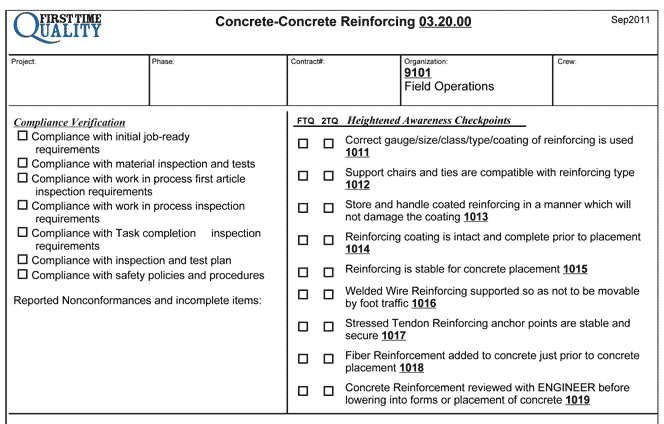Discover how proper construction quality assurance can transform your building project from ordinary to exceptional, ensuring lasting value and superior craftsmanship.
Understanding Construction Quality Assurance: A Foundation for Success
Construction quality assurance (QA) has evolved significantly in 2024, becoming an indispensable framework for ensuring excellence in building projects across the UK. At its core, QA encompasses systematic processes and procedures designed to prevent defects and ensure consistent quality throughout the construction lifecycle. Recent industry data shows that projects with robust QA programmes reduce defects by up to 45% and decrease rework costs by 30%. Unlike quality control (QC), which focuses on identifying and correcting defects during construction, QA takes a proactive approach by preventing issues before they occur. This distinction is crucial, as prevention has proven to be significantly more cost-effective than correction, with studies indicating that every £1 invested in QA saves approximately £4-£6 in potential remediation costs. In today’s complex construction landscape, where regulations are becoming increasingly stringent and client expectations continue to rise, QA serves as the backbone of successful project delivery, ensuring compliance, safety, and client satisfaction.
Essential Components of an Effective QA Programme
- Quality Management System (QMS): A documented framework outlining policies, procedures, and responsibilities
- Quality Standards and Specifications: Clear, measurable benchmarks aligned with UK building regulations and industry standards
- Process Controls: Systematic approaches to managing workflow, materials, and methodologies
- Documentation Requirements: Comprehensive record-keeping systems for tracking quality metrics and compliance
- Training Programmes: Regular upskilling initiatives for team members and subcontractors
- Audit Procedures: Scheduled internal and external quality reviews
Implementation Strategies for Superior Quality Assurance
Successful implementation of construction QA requires a methodical approach beginning well before ground is broken. Pre-construction planning should allocate 5-7% of the project timeline to quality planning and risk assessment. This phase involves detailed review of project specifications, identification of potential quality risks, and development of mitigation strategies. Material testing protocols must be established, with clear acceptance criteria and documentation requirements. In the UK market, supplier validation has become increasingly critical, with 78% of successful projects attributing their quality success to robust supplier pre-qualification processes. Regular inspections should follow a structured schedule, with detailed checklists and documentation procedures that align with both regulatory requirements and project-specific quality targets.
Digital Transformation in Construction QA
- Building Information Modelling (BIM) Integration: Enhanced quality monitoring through 3D modelling and clash detection
- Mobile Quality Management Apps: Real-time inspection recording and defect tracking
- Cloud-Based Documentation Systems: Centralised quality data management and accessibility
- IoT Sensors and Monitoring: Automated quality data collection for critical parameters
- AI-Powered Quality Analytics: Predictive quality management and trend analysis
Best Practices for Continuous Quality Improvement
Continuous improvement in construction QA demands a commitment to excellence through systematic training and development programmes. Leading UK construction firms invest approximately 3% of project budgets in quality-related training, resulting in measurable improvements in project outcomes. Performance metrics should be carefully tracked and analysed, with particular attention to key indicators such as defect rates, customer satisfaction scores, and first-time completion rates. Establishing effective feedback loops ensures that lessons learned are incorporated into future projects, creating a cycle of ongoing improvement. Regular review meetings, involving all stakeholders, help identify areas for enhancement and ensure that corrective actions are implemented promptly and effectively.
Achieving ROI Through Quality Assurance
The financial benefits of implementing robust QA systems are well-documented in the UK construction sector. Projects with comprehensive QA programmes report an average ROI of 250-300%, primarily through reduced rework, fewer warranty claims, and enhanced client satisfaction. Case studies from leading UK developers demonstrate that quality-first approaches consistently deliver superior results. For example, a recent London commercial development project reported a 40% reduction in post-completion defects and a 25% decrease in maintenance costs during the first year of operation, directly attributable to their enhanced QA programme.
Future-Proofing Your Quality Assurance Strategy
- Integration of Sustainable Building Practices: Incorporating green building standards and certifications
- Adoption of Modern Methods of Construction (MMC): Quality protocols for offsite manufacturing
- Enhanced Digital Documentation: Blockchain-based quality verification systems
- Automated Compliance Checking: AI-driven regulatory compliance monitoring
- Climate Resilience Considerations: Quality standards addressing environmental challenges
Taking Action: Implementing Your QA Programme
Implementing a successful QA programme requires a structured approach and unwavering commitment. Begin by establishing clear quality objectives aligned with project goals and regulatory requirements. Develop a comprehensive implementation plan that includes detailed timelines, resource allocation, and training requirements. Common challenges often include resistance to change and initial resource constraints, with successful programmes typically requiring 3-6 months for full implementation. Support your QA initiative by leveraging industry resources, professional associations, and expert consultants. Regular monitoring and adjustment of the programme ensure continuous improvement and long-term success. Remember that quality assurance is not a one-time effort but a continuous journey toward excellence in construction.
FAQ
Which comes first, QA or QC?
In the context of quality management, QA comes first because it involves establishing processes and systems to prevent defects from occurring, while QC comes after to detect and correct defects that may have occurred despite the QA efforts.
What is the role of a QA engineer in construction?
Monitor construction activities for compliance with plans and specifications. Perform basic quality control inspections of materials and workmanship. Identify and report any safety hazards or discrepancies to the Resident Engineer. Assist with surveying and setting out structures.
Sources
[1] https://dot.ca.gov/-/media/dot-media/programs/construction/documents/policies-procedures-publications/quality–assurance-manual-a11y.pdf
[2] https://www.planradar.com/us/quality-assurance-in-construction-5-golden-rules-saving-money/
[3] https://www.sablono.com/en/blog/quality-assurance-in-construction


Leave a Reply